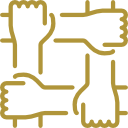Saving Sea Turtles: What next? Supporting Turtles in Crisis in Ghana
9/11/23
Image: Vet Dr Samuel Asumah with a dead sea turtle on the beach in Ghana
Our Big Give #ChristmasChallenge is now LIVE!
Donate today and your gift will be doubled.
Together we can ensure a better future for turtles and help keep our oceans healthy.
What Next? Supporting Turtles in Crisis in Ghana
Visiting Ghana through his work to help build a healthy reserve population of Endangered white-naped mangabeys (read more) over the last three years, vet nurse Matthew Rendle has become aware of an alarming number of sea turtles washing up dead or dying on beaches just south of the capital, Accra. Matthew has been discussing the problem with head of the Ghanaian government’s Wildlife Division, vet Dr Meyir Ziekah, and Mr Dickson Agyeman, Head of the Wetlands Department of the Ghanaian Forestry Division, as well as Accra Zoo’s Dr Samuel Asumah; we want to work together to find out more about what is happening to these turtles and see what can be done to help them.
What needs to happen?
In just one day last year, Matthew Rendle was shocked to find twelve dead sea turtles, representing a variety of species, along a short stretch of beach in Ghana.
The investigation into what is causing such high turtle mortality in regions recognised as globally important wetlands – the Songor Ramsar site and UNESCO Biosphere Reserve, and the Keta Lagoon Complex Ramsar site – will take time and needs to begin with comprehensive recording of turtle strandings.
In order to kick-start this initial stage of the work, we want to be able to train 30 local volunteers – three from each of ten local communities – so that they can carry out systematic beach patrols and accurately record information about the turtles they find. This will involve field training and simulation exercises, and the provision of equipment including bicycles for those collecting data and three motorbikes for their supervisors. Headtorches, thermometers, camera phones, wellingtons, gloves and disinfectant are among some of the other essential kit we’d like to provide.
The plan is for park managers from the Ramsar sites, along with a member of Dr Ziekhah’s team, to join with the Wetlands Operations Manager from the Wildlife Division and an additional local vet to run a first field training workshop to make sure that volunteers know how and what to record and what to do when they find a turtle alive.
But that’s only the beginning. There is a real need for an integrative conservation approach, to motivate local stakeholders to support and cooperate with efforts to protect sea turtles. We’d like to see volunteers and Wildlife Division staff able to carry out conservation outreach activities in schools, churches, market places and the wider community. Meanwhile, the WildlifeDivision would like to organise regular beach clean-up sessions to encourage volunteers to help tackle the problem of plastic pollution and other general debris which poses a real threat to sea turtles (Read more about the threats sea turtles face and the menace of microplastics )
Where turtles are found alive during the round-the-clock beach patrols, Wildlife Division staff would be contactable by phone to advise on further action, and whenever possible be able to attend to assess the animal’s health and check it for injuries or entanglement in fishing gear or other debris. Ideally, a small rehabilitation centre will be established, where sick or injured turtles can then be given the necessary veterinary care before hopefully being released back into the ocean. If at all possible, fitting microchips and satellite trackers to turtles before their release would of course provide invaluable information regarding what happens to them once they return to the wild.
Inevitably, the wish-list associated with setting up even a very modest rehabilitation centre is not a short one, and includes a range of veterinary and surgical equipment: antibiotics, analgesics, anaesthetics, vitamins, wound dressing materials and post mortem kits, not to mention refrigerators, nitrogen tanks and oxygen delivery equipment. Starting from scratch is daunting, but our amazing partners at ARCHELON in Greece have set a great example, and whatever we can do to help Ghana’s turtles will be a step towards protecting these incredible animals from further decline and the threat of extinction.
Europe and the Mediterranean
Expanding to support turtle conservation in Ghana doesn’t mean an end to a work with the fantastic people at ARCHELON in Greece! (Read more.) Our turtle team of vet nurse Matthew Rendle and marine vet Tania Monreal continue to work with the Rescue Centre staff, both remotely and in person. But four years into our partnership, the local team are now more than confident and capable enough to deal with all but the most tricky of clinical cases with minimal advice and support.
After our first Turtle Health and Welfare Workshop, held in collaboration with ARCHELON earlier this year, we are looking forward to hosting a second event in the UK early next year, which not only be a chance to share Matt and Tania’s invaluable expertise and experience of both veterinary and clinical aspects of sea turtle care, but also a great opportunity to connect more turtle rehabbers with each other and with WVI.
.png)
.png)

.png)
.png)







.png)






.png)
.png)




.png)


